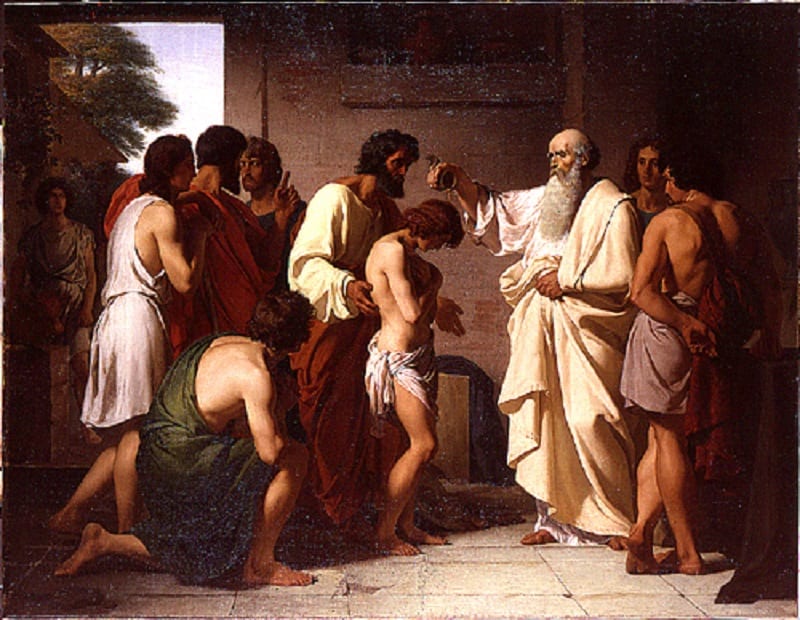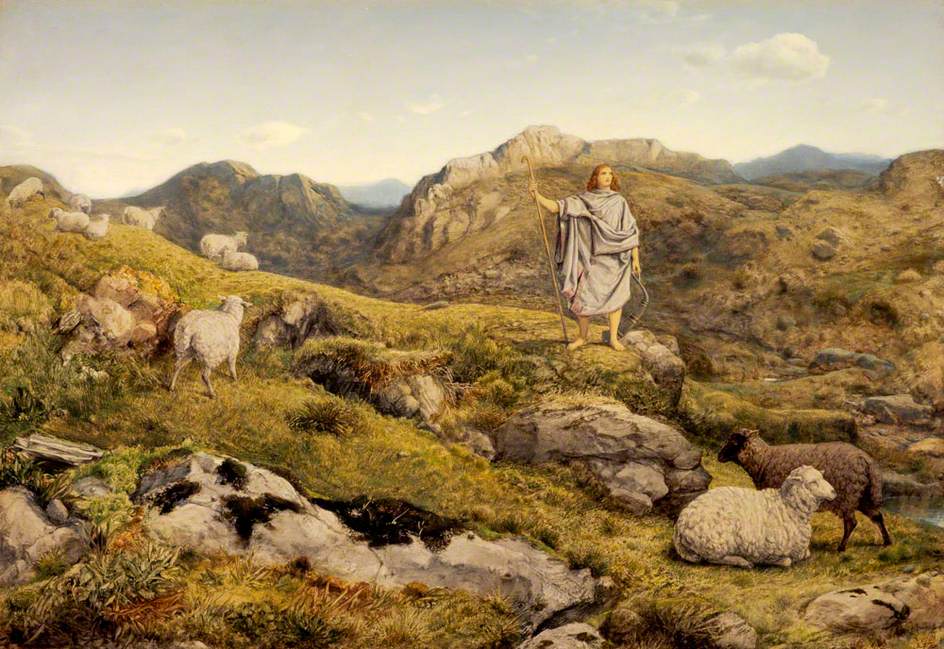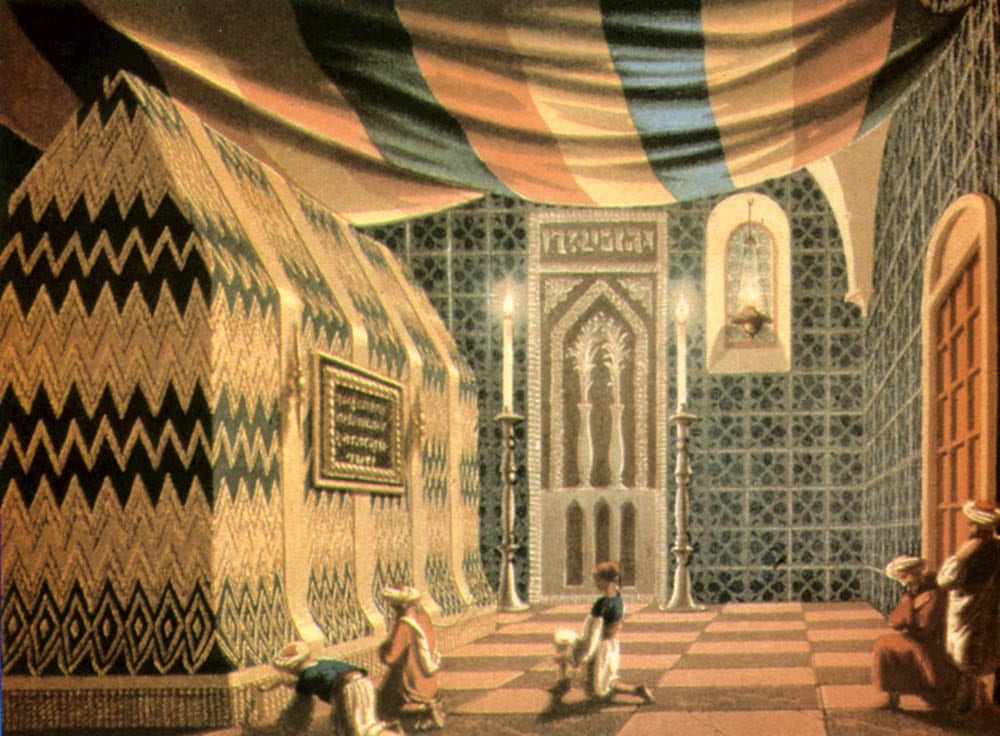You can tell a lot about religions by their archetypal protagonist. Generally speaking, Christianity is fond of pure, untarnished guys, those who turn their other cheek. The Muslims adore men who sacrifice their lives to reach paradise, whereas the Buddhists respect he who can live an entire life doing one thing – avoiding. Avoiding over eating, uninhibited sex, alcohol and drugs, and life in general.
And Judaism? Well, it certainly resents the character of the agonized martyr. Jewish protagonists are deliberately portrayed full of flaws, bursting with drives and passions, just the opposite of saints. Abraham is manipulative, Isaac is limp, Jacob is hypocritical, Moses stutters, Joseph is arrogant and vindictive, Samson is impulsive and Salomon is a hedonist.

One enlightening example can be found in Midrash Yalkut Shimoni. The Midrash asks: why did the reign of Saul end? Because he was flawless. What a strange point of view, isn’t it? isn’t a flawless leader the highest aspiration of every people? Rabbi Johanan explains, that “a man does not fit to lead, if he does not carry a can of worms on his back”, because if the leader shall start to boast, his subjects are able to remind him his flaws from the past and help him return his huge ego to a normal size.
King David is the faultiest – and at the same time most charismatic – biblical figure, still very much alive in our collective memory. He has the largest number of titles: “cunning in playing, and a mighty valiant man, and a man of war, and prudent in matters, and a comely person and the Lord is with him. (Sam 1, 16, 18).
On the other hand, David was also quite a villain. In the war on the Gilboa mountains (The Yom Kippur war of ancient times, some might say), he crossed the lines and fought with the Philistines. Then he fornicated with Bat Sheba, and not only that, he ordered her husband, Uriah, to be sent to die at war. True, David paid for his deeds. His son Absalom rebelled against him and had intercourse with all his mistresses in front of him on the roof; his other son Amnon raped his daughter Tamar. And David himself, who wished to build the temple, was denied of this honor, which was passed on to his son Salomon.

Numerous interpretations were written about the complex character of David. A fascinating one is introduced by Prof. Avigdor Shinan, in a narrative which blames the whole thing on David’s childhood. Unlike other protagonists, such as Jacob, Moses, Samson, Joseph, Samuel, Jesus and Siddhartha, whose childhood is reported in detail, nothing is said in the bible about David’s childhood. His first literal appearance is at the age of 28.
In the biblical story, Samuel is sent to the house of Jesse, with a mission on his hand, to anoint the next king of Israel. Upon his arrival, Jesse introduces his six sons to him. Samuel already knows that one of them will be the king, he scrutinizes each one of them carefully, and is deeply impressed by the looks and height of the older son, Eliab. God reproofs him in the famous verse: “Look not on his countenance, or on the height of his stature; because I have refused him: for the LORD seeth not as man seeth; for man looketh on the outward appearance, but the LORD looketh on the heart.” (Samuel 1, 16). Then Samuel asks Jesse, “Are here all thy children?” to which and Jesse reluctantly replies that there is one more, the youngest, a less important son, who watches after the sheep in the field.
We have to wander: putting his sons on display for Samuel, why didn’t Jesse include David? We find one small clue for this intriguing question in Psalms (written according to tradition be King David): “Behold, I was shapen in iniquity; and in sin did my mother conceive me.” What does David mean? Why was born in sin?

Prof. Avigdor Shinan discovered a fascinating Midrash called HaMekiri, edited in Provance in the 14th century, that solves the mystery. In the Midrash, after having six sons, Jesse stopped executing the Be fruitful and Multiply commandment, he stayed away from his wife, Nitzevet, for three years. However, in his heart, he was secretly in love with his wife’s maid. One day, failing to resist the temptation, he revealed his feelings to her, and asked her to prepared herself for him that night. Upset, the maid turned to her mistress and told her about the husband’s insolence.
We are not sure how they spelled # ME_TOO in ancient Hebrew, but Nitzevet chose the good old way to cope with cheeky husbands. She ordered her maid to prepare, to bathe and adorn herself and wait for him in her bed, then just before he entered, they set him up in the dark and switched – a known trick in the bible used by Rachel and Leah, Tamar and Yehuda, and in other cases as well.
Their scam succeeded, and Nitzevet conceived that night, with David. Jesse was certain he had intercourse with the maid, therefore considered the son who came nine months later a bastard. The only ones who knew the truth were David’s mother and her maid. Thus, David King of Israel grew up as an inferior son in a wealthy dignified family – a black sheep watching sheep. Then then Samuel came and made him the outstanding leader he was, a leader whom the can of worms on his back was heavy enough to leave home, part with the sheep, and lead a nation – and the rest is history.